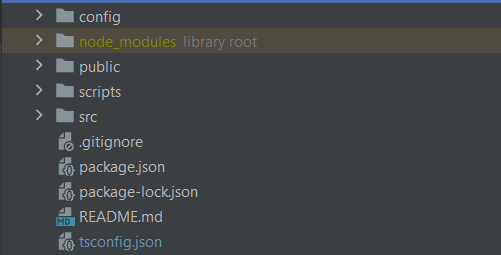This tutorial will help you set up path aliases for your cretae-react-app.
Content
<a href="#Intro">Introduction </a>
<a href="#Craco">Import Craco </a>
<a href="#Eject">React-scripts eject</a>
Introduction
Let's start with why this is necessary at all.
As the number of components and various services in your project grows, the following imports start to appear more and more often:

I would like to replace these paths with something like this:

Below I have given 2 options for solving this problem.
Import craco
- craco. , , path aliases craco.config.js.
const path = require('path');
const resolvePath = p => path.join(path.resolve(__dirname, p))
module.exports = {
// ...
webpack: {
alias: {
'@components': resolvePath('./src/components'),
'@assets': resolvePath('./src/assets'),
'@services': resolvePath('./src/services')
}
},
// ...
}
React-scripts eject
, . , , !
npm react-scripts eject
:
config/
scripts/
tsconfig.json ( jsconfig.json)

path aliases tsconfig.json ( jsconfig.json). , config/ webpack jest.
{
"compilerOptions": {
// ...
"baseUrl": ".",
"paths": {
"@components/*": ["src/components/*"],
"@styled/*": ["src/components/styled/*"],
"@pages/*": ["src/pages/*"],
"@assets/*": ["src/assets/*"],
"@services/*": ["src/services/*"]
},
// ...
},
// ...
}
modules.js, .
'use strict'
const fs = require('fs')
const path = require('path')
const paths = require('./paths')
const chalk = require('react-dev-utils/chalk')
const resolve = require('resolve')
const slicePath = p => p.slice(0, p.indexOf('*') - 1)
// ...
function getWebpackAliases(options = {}) {
const baseUrl = options.baseUrl
if (!baseUrl) {
return {}
}
let resultAlias = {src: paths.appSrc}
return Object.assign({}, resultAlias,
Object.keys(options.paths).reduce(
(obj, x) => {
obj[slicePath(x)] = options.paths[x].map(slicePath)[0]
return obj
}, {}
)
)
}
// ...
function getJestAliases(options = {}) {
const baseUrl = options.baseUrl
if (!baseUrl) {
return {}
}
let resultAlias = {'^src/(.*)$': '<rootDir>/src/$1'}
return Object.assign({}, resultAlias,
Object.keys(options.paths).reduce(
(obj, x) => {
obj[`^${slicePath(x)}(.*)$`] = options.paths[x].map(x => `<rootDir>/src/${slicePath(x)}/$1`)
return obj
}, {}
)
)
}
// ...
Now our project is successfully working with the path aliases we created.
Use it to your health!